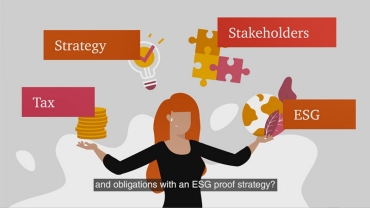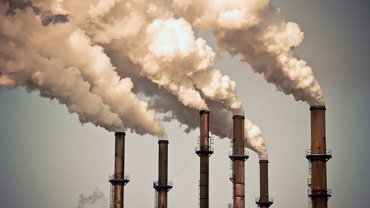
CBAM update: Council largely agrees in general approach
31/03/22
The Council largely follows the initial Draft CBAM Regulation of the European Commission, but excludes the phase-out of free allowances by 2036. On 15 March 2022 the Council reached an agreement (the so-called ‘general approach’) on its position regarding the Draft CBAM Regulation. The position of the Council is that the phase-out of free allowances needs to be sorted out “to ensure the CBAM's economic efficiency, environmental integrity and WTO compatibility”.

What does this mean for you?
The Draft CBAM Regulation effectively implies an EU levy on embedded emissions of a selection of products - cement, aluminium, fertilisers, electric energy production, iron and steel - when imported into the EU. The role of the CBAM is to address the risk of carbon leakage and to reinforce the EU ETS. It is ultimately aimed at replacing the existing free allowances mechanism applied in the EU ETS.
The current EU ETS contains substantive free allowances which are meant to safeguard competitiveness of EU industry and to avoid carbon leakage.That system of free emission rights has been effective in addressing the risk of leakage but it also dampens the incentive to invest in greener production. In the Commission's new proposal for a revised ETS, however, the number of free allowances for all sectors will decline over time so that the ETS can have more impact in fulfilling the EU's climate goals. Without accompanying measures this would mean that the risk of carbon leakage would increase. To address this risk of carbon leakage in a different way, the CBAM is introduced, which aims to ensure equivalent carbon pricing between imports and domestic products.
Background
The Draft CBAM Regulation was part of the Fit for 55 package that was presented by the European Commission (“EC”) on 14 July 2021. The package contains a set of legislative proposals to make the EU's climate, energy and taxation policies fit for reaching the European Green Deal's objective of reducing net greenhouse gas emissions by at least 55 percent by 2030. The proposed administrative entry into force is foreseen for 1 January 2023 and the effective implementation by 1 January 2026.
The legislative process to enactment of the Draft CBAM Regulation requires in short that both the Council (the Ministers of Finance of the Member States) and the European Parliament (“EP”), being the EU co-legislators, need to agree on a compromise for final CBAM Regulation based on the initial legislative proposal of the EC.
EP procedure
Within the EP, the Committee on Environment, Public Health and Food Safety (“ENVI”) Committee is in the lead with regard to preparing the EP's position on the EC’s Draft CBAM. The lead Rapporteur, Mohammed Chahim, of the ENVI Committee proposed at the end of December ‘21 a further tightening of the Draft CBAM Regulation (“ENVI Draft Report”). This ENVI Draft Report included, amongst others, the extension of the products in scope to organic chemicals, polymers and hydrogen, reducing the administrative trial period by one year and accelerating the full phase-out of free allowances by 2028 (instead of 2036).
End of February, the Committee on International Trade, one of a number of EP’s committees that is designated to provide views and amendments (“opinion”) on the EC’s Draft CBAM Regulation, held its vote on the ENVI Draft Report. It narrowly decided not to provide an opinion, which indicates that a majority of its members disagree with this ‘ENVI Draft Report’. Also, other Committees are expected to give their opinion in the next few months. The final voting of the members of the ENVI Committee on the ENVI Draft report is tentatively scheduled for the second half of May in which they will include the opinions of the other committees.
If adopted by the vote in the ENVI Committee, the proposed changes to the draft CBAM Regulation will be put to all 705 Members of the European Parliament (MEPs) for a vote in the Plenary Sitting, which is tentatively foreseen for either June or July. When the ENVI Draft Report is adopted by the Plenary, it will serve as the EP's formal position or mandate for the subsequent negotiations with Council and the EC.
Next steps
As soon as the EP agrees on its formal position, the so-called Trilogue negotiations between the EP, Council and the EC will start. If a draft political agreement can be reached in the Trilogue negotiations, it will then still need to be formally adopted by the Council (by qualified majority, i.e. 15 of the 27 EU Member States) and in the EP, first by the ENVI committee and then by the Plenary Sitting (by simple majority of MEPs).
Appreciating that the aforementioned may be of a somewhat technical nature, we are happy to address any questions you may have during a telephone call / video meeting.
In the meantime, we will keep you updated on the process and relevant developments.
Contact us

Energy - Utilities - Resources Industry, Tax, Partner, PwC Netherlands
Tel: +31 (0)65 154 18 97

Partner, Energy transition and sustainable energy, PwC Netherlands
Tel: +31 (0)65 160 08 61

Juliette Marsé
Director (Tax) - Energy, Utilities & Resources, PwC Netherlands
Tel: +31 (0)63 419 61 08

Mohammed Azouagh
Senior Manager - Tax, Sustainability and Incentives, PwC Netherlands
Tel: +31 (0)62 380 36 54



















